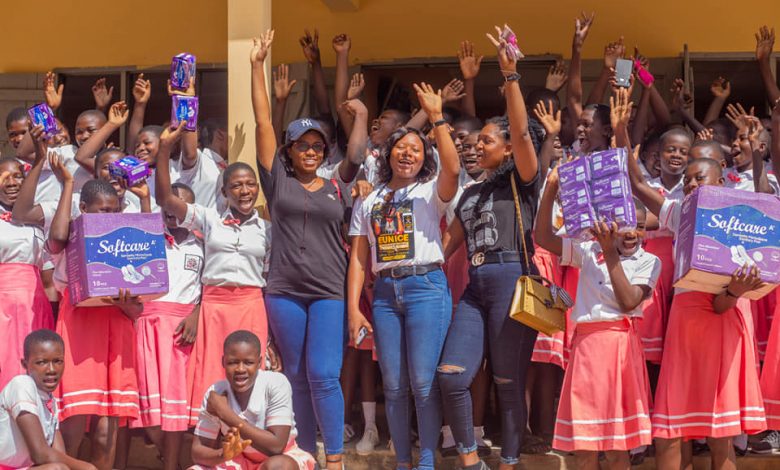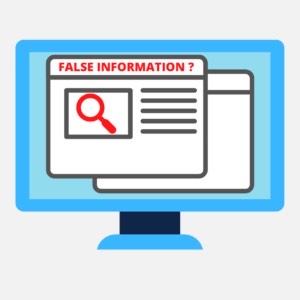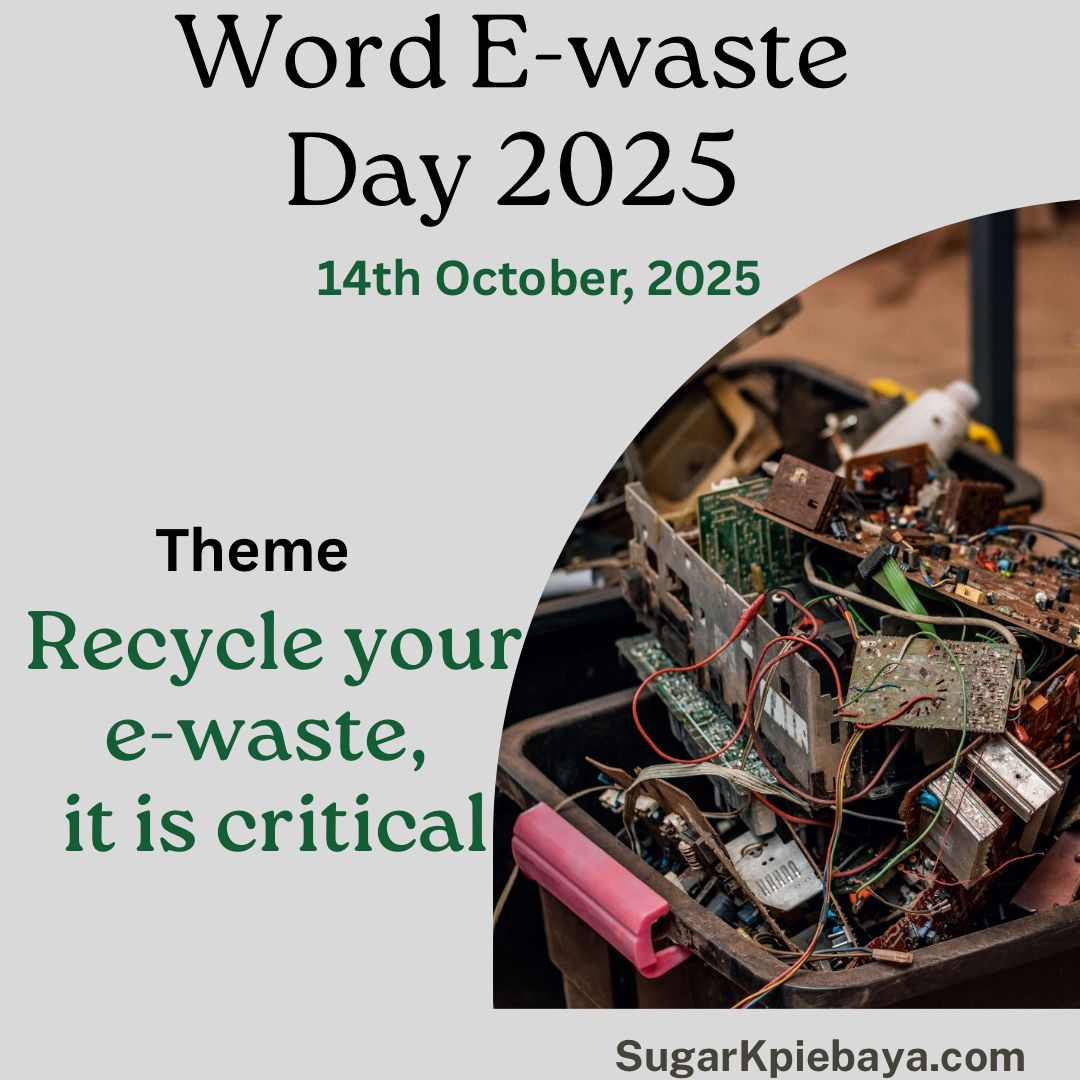World Menstrual Hygiene Day
Have you ever heard that people are so poor that the women and girls in that situation have to use clay as a substitute for sanitary towels?


In 2015, I did a three/four months internship at Potsin T. I. Ahmadiyya Senior High School (P-AMASS) as part of the requirements for a bachelor’s degree at the University of Education, Winneba (UEW). One day while sitting under a mango tree where some of the teachers sit when they do not have lessons, one of the permanent teachers from a different department engaged me in conversation. In the cause of the conversation, he found out I am from Northern Ghana, and he started telling me about the times he visited Northern Ghana and some of his experiences from there. One of the things he shared which shocked me was that FGM was very rampant in the north and that all the ladies from the north are victims of FGM. I told him that wasn’t true and that I was an example of someone who was not circumcised. He said it is because I wasn’t born and bred there, which is not true anyway. As I tried to tell him my experiences, he got angry and said it was because of people like me that the north is not developed. ‘people like me’ will never agree that the problem even exist in the first place and so we won’t accept help.There are many other experiences like these, I have shared some of these before. Many people will whether they have visited the north before or not have heard and may be shared some stories about the north, some of which are not true.

Today is World Menstrual Hygiene Day and Ghanaians woke up to a video of a young lady, Rita Etornam Sey, saying that there are some young ladies in the north who use clay as sanitary towels (I don’t even know if I should it sanitary towel or sanitary clay) when they are menstruating. In the video, she said, ‘I tell myself I have seen poverty, but when I went to the north, girls use clay as substitute for sanitary pads.’ For those who don’t know what clay is, it is a type of fine grained soil and it iss mostly used for making cooking ware, flower pots, bricks and so on. She has received a lot of backlash from Ghanaians, especially those from the north, asking her to name the community where this is happening. People from the north are saying that they have never seen or heard this before, so where exactly did she get that from? I think that people need to stop hiding behind ‘in the north’ and generalization and be more specific with issues like this so that help can be given to the people in such communities, if it is true.
I have shared experience about my first menstrual experience and how I was relying heavily on pieces of cloth to avoid staining myself. If Rita had said most girls in the north are using pieces of cloths or napkins that are not hygienic enough, no one would probably argue with her. Long before we were introduced to sanitary products, many people were relying on pieces of cloths during their menses. It is no news that a lot of women and girls do not have access to menstrual products, not only in northern Ghana, but in a lot of other communities in many regions in the country. Recently, there was a lot of circulating on social media about how some girls in some parts of Ghana use newspaper as substitute for sanitary products.
Menstrual Hygiene Day is an annual awareness day on May 28 to highlight the importance of good

menstrual hygiene management at a global level. In Ghana, many NGOs and individuals in Ghana carry out a lot of activities to mark the day. On this day, taboos, stigma and myths surrounding menstrual hygiene are challenged and stakeholders remind everyone else about the importance of menstrual hygiene and the roles of various individuals in promoting menstrual hygiene. Some of the activities that people carry out on this day, include education and sensitization on menstrual health, donating menstrual towels and other sanitary wares to girls, call on government to remove taxes on menstrual ware and so on. The theme for this year’s celebration is Making menstruation a normal fact of life by 2030.
It is however very sad to note that there are a lot of young ladies and girls who are still affected by period poverty, thus, they struggle to get access to menstrual products mostly due to high cost of these produce. Sometimes, women and girls do not have access to the safe, affordable, hygienic menstrual products they need, and are not able to manage their periods with dignity, sometimes due to stigmatization, ignorance and sanction. It could also be due to misinformation about menstrual hygiene.
Sometimes, when people want to trend or to gain attention, they give out false information, there is

nothing wrong with letting the world know the kind of difficulties some people go through to access certain facilities or services, but let us always tell the story as it is, paint the right picture and if people still want to provide help to curb the situation, they will do so. Don’t embellish the story so much so that the people who are affected by the situation will not be able to relate to the situation any longer. In cases like these, my people (from the north) will not take it lightly, and start doing a comparison of the north and the south. This does not end well sometimes, instead of attacking the issues, we are sometimes tempted to attack the individual and where they come from, more like a battle ‘between people from the north and the south.
Let us be circumspect in what we put out there about other people, you don’t need to paint someone

else black to make ourselves look better or become popular. If anyone else knows or has an idea whichever community (ies) where women and girls use clay as a substitute for sanitary products, reach out, let us join hands and visit the community, sensitize the community about menstrual hygiene so that by 2030, we can all make menstruation a normal fact of life. Meanwhile we are all waiting impatiently for Rita to come and give us the name and of the community where ladies use clay as a substitute for menstrual products. CHEERS!!!






Great job. Keep it up.
I believe the North is a vast area as such we need to start limiting ourselves to the specific areas in our reportage. That is how we can identify the those that really need help.
I came across a brief video of the “clay” story and it was quite something to imagine.
Ghana’s latest census report shows females are more than the names- that has always been the trend though. Clearly we have a larger proportion of the Ghanaian populace Who have to manage menstruation each month. We should Most defintely have a policy in place to deal with this situation.
For areas where there is vulnerability, why not provide support for such communities or individuals.
Menstruation is a constant Thing for ladies out there. The menstrual pad industry should find a way to give back as part of it’s social responsibility.
However for sustainability purposes we May have to fund that. A short code to buy a pad or two Every month by well meaning Ghanaian for the vulnerable would not be a bad idea at all.
Lets think about that.
This is interesting, I try the short code thing is a good idea
Thank you for the education, we are all willing to help these girls or women using clay as substitutes for sanitary products.
Ms Rita, we are waiting…….
You are welcome ????
Once again great write up ????
I mean how? Clay? I have been quiet about this because I was surprised all TV channels were silent despite the numerous complaints on social media until TV3 dissociated themselves from it yesterday. We are proud of where we come from whether poverty or not. Growing up I was a very happy child.i didn’t know we were not rich ,I just knew I couldn’t get lavish stuff and I was ok. Everyday the north this,the north that.
It is sad